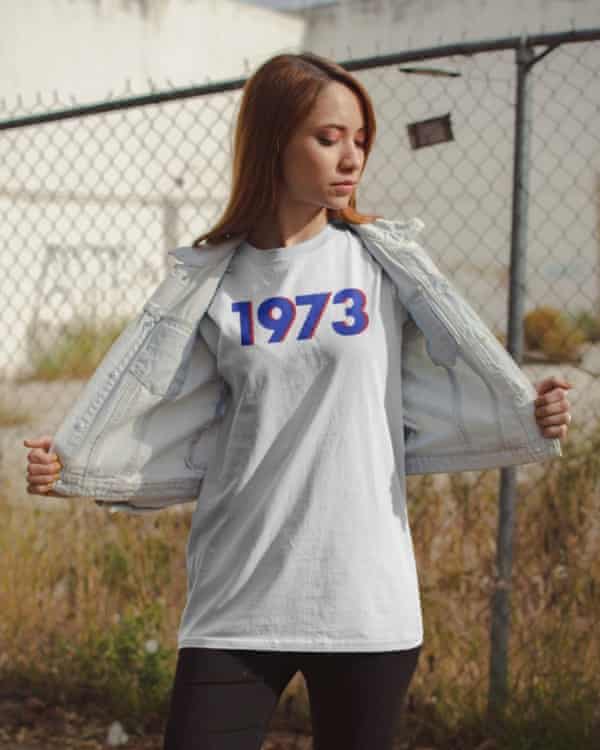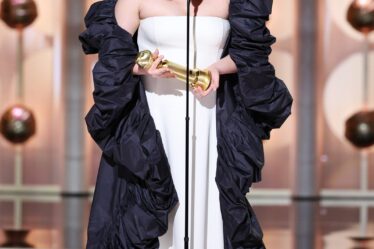
This weekend’s expected pro-choice mass protests across America will no doubt feature signs and chants that call for, as social media has in recent days, “bans off our bodies”.
But some of what many protesters wear across different cities will probably be a bit more cryptic.
As well as green, a colour associated with abortion rights, expect to see “1973” emblazoned across sweatshirts, T-shirts, caps and tote bags.
This is the year of Roe v Wade, the landmark supreme court decision providing women with the constitutional right to seek an abortion in the US.
The historic ruling is now under existential threat and protests have been spurred by leaked news earlier this month that six out of nine US supreme court justices have signed on to a draft opinion that overturns Roe, with a final decision expected next month.
The garments emblazoned 1973 are part of a range made by Prinkshop, a US company that describes itself as “a social enterprise that creates advocacy campaigns that are designed to be worn”, and sold on Social Goods, a site that sells activist clothing.
Part of the proceeds for sales on Social Goods go directly to the the National Institute for Reproductive Health, a New York-based advocacy group campaigning for reproductive choice.
In the past week, 1973 merchandise has been worn by Lizz Winstead, one of the creators of The Daily Show, who was speaking at a rally in New York, and by Benedict Cumberbatch and other cast members on Saturday Night Live.
According to the New York Times, sales of 1973 items have surged since early May when leaked documents suggest the supreme court is poised to strike down Roe v Wade, leaving it up to individual states to decide if they want to allow or ban abortion.
Imitation is always a sign of popularity too – there are now 1973 T-shirts available on Etsy and Redbubble.
To wear this year written across clothing is a quiet but determined way to protest – even if passersby do not know the significance of 1973 in this context, it sparks conversations.
“They get people to start talking and keep talking on the issues,” said Kate Sokolov, one of the founders of Social Goods.
For the record-breaking Women’s March in 2017, the pussy hat – a pink, often home-knitted beanie with cat-like ears – became the choice to hit back against the presidency of Donald Trump and his famous “grab them by the pussy” remark, and those items are likely to be prevalent at Saturday’s protests.
The Prinkshop range actually dates back to 2013 to mark the 40th anniversary of the Roe v Wade ruling.
Amy Schumer and Busy Philipps have previously worn the items. Prinkshop founder Pamela Bell described it as a “slow and steady seller” and “a kind of a code”.
Lisa Sokolov, the other founder of Social Goods, hopes it’s a code more and more people will understand.
“Our goal was always to make a statement,” she said, “and that merchandise could be the catalyst for change.”



